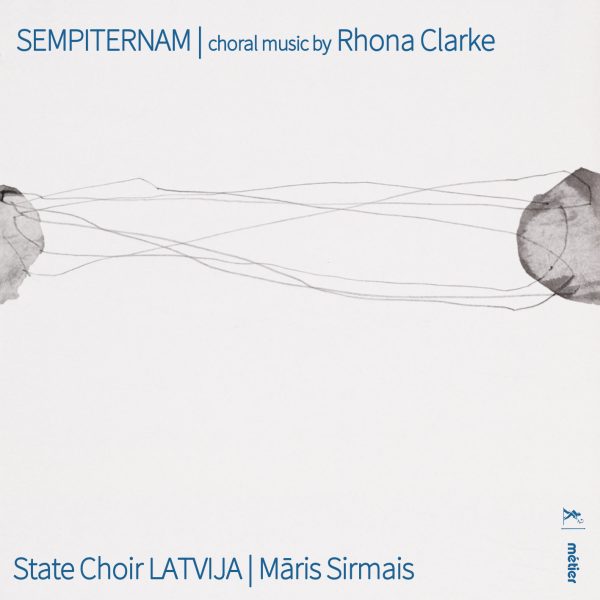Fanfare
The Latvian choir and frequent use of Latin text make it imaginable to surmise that this is a recording of music by some East European mystical sort, in the manner of Arvo Pärt, say. In fact this often mesmerizingly beautiful material is the product of a woman born and educated in Ireland. Rhona Clarke writes in a broad variety of formats, but developed a special connection to choral music as a singer herself, in choirs where she was in the soprano or alto sections, “in the thick of the harmony,” as she puts it. While much of the material here is evocative of ancient musical patterns, Clarke peppers her scores with modern touches, forming a kind of stylistic arc that spans across centuries. There is a nice variety of dramatic landscapes here, including the shorter works such as the merry carols, the festive Rorate caeli, and the imaginative writing in The Kiss, The Old Woman, and A Song for St. Cecilia’s Day.
Clarke describes herself as someone raised Catholic but no longer religious, yet she is obviously inspired by the musical traditions of the church. The solemn Ave atque vale is based on secular poetry (an ancient Roman text that Clarke reinterprets to act as a commemoration of World War I fallen soldiers), but the O vis aeternitatis (text by Hildegard of Bingen) and Two Marian Anthems are both subtly powerful anthems of faith. The major work here is a superb and deeply moving setting of the Requiem Mass, incorporating four sections; “Introit,” “Lux aeterna,” “Pie Jesu,” and “In Paradisum.” Clarke eschews the fiery wrath that inspired Verdi and Berlioz in this material, falling more so in the camp of Fauré. The “Lux aeterna” is written in an engrossing, murmuring polychromatic language that I associate with the choral music of György Ligeti. Clarke’s writing here is concise and powerful. This is major addition to a vaunted tradition of musical settings of the Mass for the souls of the dead.
The State Choir LATVIJA presents this music with great sincerity and gusto, albeit with a bit too much of the latter quality at times. I would greatly look forward to hearing this music performed by other choruses as well, such as the superb vocal ensemble The Crossing, especially the Requiem. I have no doubt that this inspirational and highly imaginative music deserves a wider audience.
@divineartrecordingsgroup
A First Inversion Company
Registered Office:
176-178 Pontefract Road, Cudworth, Barnsley S72 8BE
+44 1226 596703
Fort Worth, TX 76110
+1.682.233.4978












